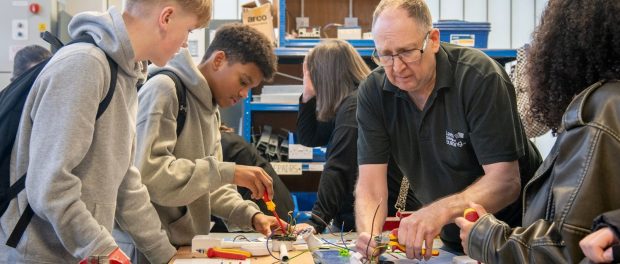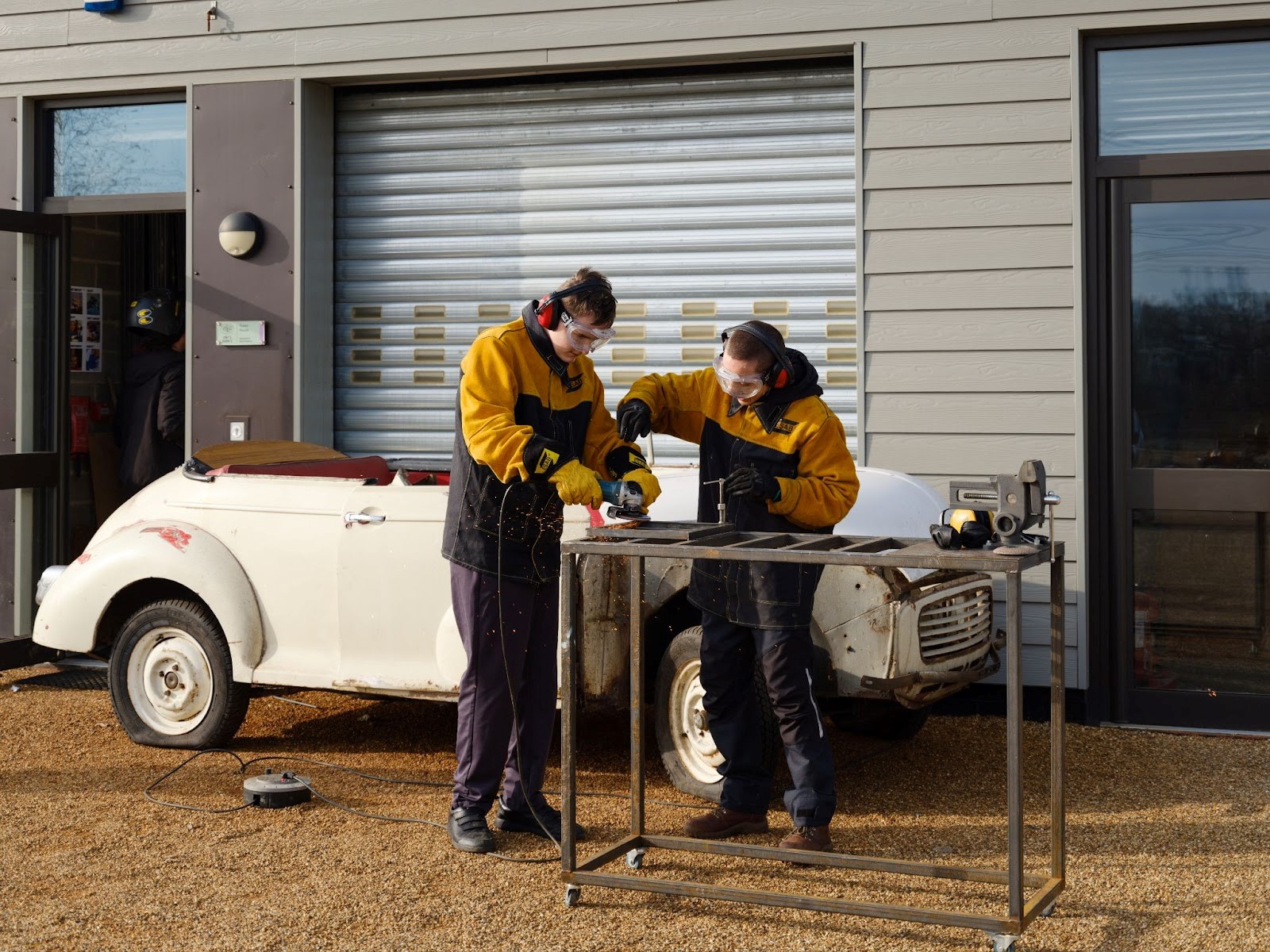GCSE results day: Expert urges young people to consider a career in the trades
 Image credit: Yorkshire Children’s Charity
Image credit: Yorkshire Children’s Charity
Ahead of GCSE results day (21st August), research has revealed that for the majority of young people in education, a career in the trades is not something they are considering.
Skilled trades like construction, electrical work, and plumbing are facing continual labour shortages thanks to skills gaps and an ageing workforce1, and with the Government prioritising construction as part of its growth strategy 2 a stark reality has appeared; there just aren’t enough workers to get the job done.
The construction industry is a fundamental pillar to economic stability, creating employment for millions, and injecting billions of pounds into the UK’s economy annually. But for many young people, skilled trades are being sidelined and overlooked by careers in tech and digital industries.
Specialist metal supplier, metals4U, conducted a survey to answer why young people are not considering a career in the trades, and what can be done to prevent a skills collapse in the sector.
Lack of awareness is creating a shortage
Only 8% of 14-17 year olds say they are interested in a career in construction or a trade; this falls behind other sectors such as IT (14%), healthcare (12%), and the arts (8%), highlighting the growing disinterest.
The survey uncovered that one in four (24%) young people don’t believe they are taught enough about career opportunities in trade. Following this, the survey also revealed that 28% of teenagers wouldn’t feel comfortable in a role like this.
This disconnect is especially apparent among young girls, with almost half (47%) feeling like physical strength is a barrier to a future in a trade role, compared to 35% of young males.
Age also plays a notable role in the findings, with 14 year-olds being significantly more likely to feel uneasy in trade roles compared to older teenagers, suggesting that even one year group lower can have much less interest thanks to their early impressions of trade sectors and their connection with technology.
Metals expert and chairman at metals4U, Paul McFadyen, shares, “A young person’s environment plays a huge role in the career choices they eventually make, shaping what opportunities they feel are available to them.
“Families, teachers, and even businesses can nurture the next generation’s skill sets, and provide clearer insights into careers in trade and the pathways that will help to fill the employment gaps in the industry.
“It is critical that we create an open and engaging space for young people to learn about the different trade roles that exist, tackling the notion that the industry is outdated and unappealing.”
A brighter future?
The Government plans to have up to 60,000 more engineers, bricklayers, electricians, and carpenters trained by 2029, hoping to tackle the skills shortages and inspire the next generation into the construction industry 4, and organisations like Ore Projects are working to create a brighter future for this sector.
Founded by two women in the industry, Ore Projects focuses on supporting marginalised groups to learn skills in a safe and inclusive environment, and facilitates lots of different groups, including women and LGBTQIA+, SENDMH students, and young adults at risk of not being employed.
The co-founder of Ore Projects, Daniela Rubino, says;
“State school resources are low, the facilities for Design and Technology are dwindling. Most of the students we work with who study the subject are confined to computer-based learning. Young adults can go through school on an academic path that doesn’t fit their needs. We need more opportunities to show students the value of working with your hands and more accessible pathways into trade skills.
“Big companies have a responsibility to look after their customer base, this should include nurturing the skills of their future customers. Young adults need time and space to make mistakes, and learn through trial and error. metals4U provides Ore Projects with the materials to run the scheme, without this we wouldn’t be able to offer the freedom to learn creatively which is key in encouraging supporting and empowering young adults into a career that they will enjoy. We think everyone deserves that.
“There is an international shortage of tradespeople and many young adults facing unemployment. We are slowly bridging the gap by providing free opportunities to those who need them most.”
What’s next?
Paul says, “As the newest cohort of GCSE students receive their grades and look to their future, we hope that some of them will give thought to exploring a career in construction, manufacturing or the trades. But more needs to be done within education institutions to ensure that awareness of career opportunities in trade industries grows.
“There is a great opportunity for the trade sector to better connect with young people, and it starts with visibility and openness. Our survey reveals that careers in construction are slipping off the radar for the next generation.
“At metals4U, we are committed to making sure this doesn’t happen, aiming to reignite interest and educate young people on the career pathways available to them. Our partnership with Ore Projects helps to remove barriers and provide the materials needed for effective, skills-based learning. With the right tools and encouragement, we’ve seen incredible talent emerge, fuelled by confidence, knowledge, and inspiration to build Britain’s future.”
For more information, visit: https://www.metals4u.co.uk/blog/vanishing-trades?v=latest


